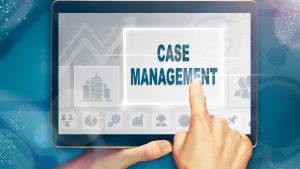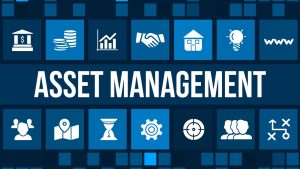Large corporations include multiple processes and employees and must follow various protocols. While the bigger the team, the easier it is to manage the workload and the harder it is to keep track of everything. It is challenging for managers and top decision-makers to keep up with every role or assess how effectively everyone is carrying out their responsibilities. Typically, the company will depend on a report compiled by team members. The issue with this method is that it is not only old-fashioned but also unreliable. Information could be biased as the person collecting the report will determine what factors can be considered when making its conclusions. This is why many organisations implement an enterprise resource planning system (ERP). From finance, logistics, human resources, design, material, production, and delivery, the number of teams that can be integrated, monitored and tracked becomes unlimited. However, the advantages of an ERP system are not limited to it being a platform that interconnects everyone and everything or is a solution for managers who want a birds-eye view of all operations. It offers much, much more. Here are ten points a potential ERP user should consider when investing in an ERP software solution.
Deconstructing Ten Essential Points That ERP Users Wish They Knew Before Incorporating It as a Business Solution
As a company alien to an ERP solution, it is natural to distrust or doubt the advantages such technology promises to deliver. Questions like whether an ERP does work and whether it has a good return on investment are potential questions any company will ask itself before investing in an ERP solution. Here are some detailed answers to some of the most common questions by ERP users.
How to Implement an ERP System?
Note that implementing an ERP solution will not change the company overnight. The speed at which an ERP solution may finally be effective for a business will significantly depend on the company culture and its employees. This is because the employees in a company will need to be trained to help them familiarise themselves with this new technology they will have to interact with daily. Following the necessary steps when implementing the software solution is one way to ensure that organisations experience the benefits an ERP system provides in reality. The implementation stage can be divided into multiple phases. This means the time taken to integrate an ERP system into your operations fully will take a reasonable amount of time. Depending on the organisation’s size, it may be as short as four to six months or even as long as two years. Additional factors that affect the total implementation period include the system’s complexity, the number of customisations the organisation has requested, the number of users that will use the solution, whether the ERP is a cloud or on-premise system and more.
The first step you need to do before actually implementing the system is to identify the business’s objectives. Think about what goals you are trying to achieve by implementing an ERP solution. It is not enough to blindly choose an ERP system simply because it is a trending tool in the business world or offers specific advantages. If the general advantages that come with an ERP do not necessarily match your organisation’s needs, the implementing process will lack motivation. Another essential step in this phase is data migration. This refers to the transfer of existing data to the ERP system that will not act as a single source of truth for all information. However, is transferring all the data in an organisation necessary? You need to take time to filter out data that are no longer necessary and inaccurate. In simple terms, companies need to clean their data and transfer information only required. If done improperly, it will take an enormous time to fix, dragging the implementation period. A mandatory requirement of the implementation stage is to carry out as many tests as possible. The more customisations that are required by the business, for instance, the higher the need to carry out tests to assess its feasibility.
How Does Training Employees to Use the ERP System Work?
Training is an aspect that goes under ERP implementation. Most ERP vendors will advise against going live with their ERP solutions without adequate training for company employees. At the same time, however, this is not to say there is no training once the solution goes live. It is essentially an ongoing process throughout the period. It is essential to have a compact training plan to ensure employees catch up quickly and thoroughly understand their roles and functions. Companies first need to set a budget to effectively carry out training uninterrupted. A few points to consider when developing a training plan is to assess the best way to train a company that either has a small team or multiple individuals. Do all of them need to be tech-savvy and know everything that is going on in the system? Or else, will the training be restricted to the roles carried out in their department? Experiences by various companies indicate that the latter is the most effective method. This is based on narrowing down training to keep it practical and relevant to their responsibilities.
According to Ebbinghaus’s Forgetting Curve, if employees are only exposed to the ERP system once, 80 per cent of the material is forgotten within seven days. Thus, for training to be effective, you are advised to provide as many chances for your employees to receive hands-on experience by giving users access to your training materials early on. A study by Garner notes that carrying out training for three to four weeks during post-implementation is a great way to guarantee increased retention.

At some points, the ERP vendor automatically provides training by sharing a range of hand material or online content created, making it easy for their client’s employees to be familiar with its features. Keep in mind, however, that this is general content that is meant to encapsulate a “one-size-fits-for-all” approach. You may be a company that has requested significant customisations. In that case, such standardised training may not be effective. In other words, since your ERP system will be configured to meet your business needs, your processes may differ from what you see in generic videos. A great ERP vendor, however, that takes the time to go through your business processes and cater an ERP solution ideal to carry out those functions will also be able to provide training effectively.
In the post-implementation period, you do not need to keep investing in experts to conduct training. While that is a question freely up to you, if you want to smartly strategise your finances, you can cut down ample spending by hiring in-house personnel to train their respective teams. Carrying out training in such a way helps improve time, productivity and risk management.
How Do You Find the Most Suitable ERP Vendor?
Like the project implementation phase, you need to consider your business goals. Identifying this is the first step to ensuring that the ERP vendor is the most suitable for you. This means an ERP vendor known to provide excellent services to your competitor will not necessarily mean they have the best ERP system. Instead, it only reflects your competitor’s ability to smartly select an ERP vendor that meets its requirements. If you are not sure how to do this, you can alternatively select a vendor based on their consultation services. Very good vendors offer clients consultation services to discover their core business operations before providing an ideal solution. In other words, companies that are not 100 per cent certain of their operations can avail of the additional services provided by ERP vendors who will assess the drawbacks of the current system and suggest a feasible solution through an ERP system. A vendor that pays significant attention to your needs indicates how much dedication it will have to help you solve your business bottlenecks.
Considering that there are multiple ERP vendors in the market, a vital factor that will be considered is which vendor will provide the best return on investment. This means you should not decide on a vendor based on how expensive or cheap their solution is. Instead, remember that an ERP vendor will be your long-life-standing partner. Hence, consider whether the vendor will make a good partner in the long term. Are both of you on the same page? Is their customer service great? How fast are they in addressing problems? Do they have a history of maintaining great relationships with their other clients? These are some questions to ask yourself when selecting an ERP vendor.
The reputation of the ERP vendor will also be a good indication of the reliability of their solution. Considering that an ERP system integrates all information into one platform, data security becomes a risk many businesses are afraid of. While it is the company’s practices that will, in reality, assess how safe your data is, as far as the ERP vendor is concerned, looking at the security measures implemented in the solution is a good option. Researching the added layers of security the vendor has infused into the solution or checking the company website to see whether it holds specific accreditations that demonstrate their reliability are ways to ascertain the vendor offers a reputed and standardised ERP system.
Other aspects, such as ensuring they have the modern ERP features you require, and offering the flexibility to add customisations and access information from a remote location, are pointers in shortlisting the best ERP vendors.
Do ERPs Require Maintenance?
ERPs do require maintenance. Whether you need an in-house team to carry it out or rely on the software vendor is a question to you. Certain ERP vendors offer maintenance services as part of their solutions. Hence, when a problem occurs, directly contacting the vendor will be your go-to strategy. One crucial requirement in this regard is service level agreements (SLAs). This is an important part of contracting for maintenance services. Whether you are contracting with a third-party service or direct maintenance by the vendor, it is mandatory to have an SLA policy clearly expressed in a written document. The point of an SLA is to determine whether the problem you face is covered under the maintenance agreement. It generally puts forth a limit in terms of how severe the issue is. This also explains how long it will take to rectify the problem, providing assurance.
Another aspect of maintenance is upgrading the ERP system to make it more compatible with modern demands. Ensuring updates are carried out is pivotal, as ignoring them may lead to system issues and even put your ERP at risk. In other words, an ERP that has not been updated could lead to cyber attacks or security breaches due to the lack of powerful prevention tools that have not been updated. In this regard, fully web-based or cloud-based ERP systems automatically carry out updates, thereby not interrupting employees from working. Even if you do not have such a system and prefer on-premise instead, having a process in place that allows you to know when the system needs to be updated is beneficial when slotting scheduled maintenance.
What Are The Advantages of an ERP system?
As already made clear, ERP systems do offer multiple benefits. Hence, other than integrating all departments and centralising data into one place, the ERP system helps streamline several processes. This includes the management of finances and improving communication and relationships with customers. It additionally helps you automate mundane business processes and can infuse multiple systems within one. This also means that it compiles and updates information in real-time, eliminating any chances of data duplication or errors. It sees the micro and macro picture, helping businesses assess the most suitable solution. It essentially provides total visibility to your business and helps you monitor each department’s progress or even on an individual level. It offers automated reporting capabilities whereby hidden insights highlight aspects that are energy, finance and time-consuming. It, in other words, provides managers with information that can help them to make better and smarter decisions.
Companies that send products via the supply chain can optimise their processes through an ERP system. Hence, when an order is sent for delivery, an ERP system helps you to monitor its status in real-time. No matter where it is in the world, both parties, inclusive of the consumer, can easily check and reliably expect their packages to be received. It moreover tracks inventory, updating the system whenever items are sent or used for production. This way, actors like managers can schedule orders in advance and keep their inventories stocked and updated.
What Are The Risks of an ERP System?
While ERPs have multiple benefits, as with any other solution, it is important to know the entire picture. No solution is perfect. This includes ERPs, which may not, at times, be the best solution for some corporations. For one thing, investing in an ERP system can be considered unwise if you are a small company that is struggling with finances or a start-up. This is based on the overall expenses and the average time it takes for an ERP to be implemented and produce results. In simple terms, the return on investment for a company already struggling with finances may not arrive fast and could lead to companies being in a fixed position. Therefore, companies must understand from the get-go that ERPs are complex and expensive when looking at the entire picture.
Moreover, while a company is free to customise its ERP solution to its needs, the more new features that are added, instead of the general features present, the more costly it gets. Hence, a company that simply invests in an ERP system that offers standardised solutions to that industry may not find it as advantageous. This is because the solution does little to cater to your business functions.
Is It Too Expensive?
While an ERP system is not the most cost-effective, it is financially feasible in the long term. This is because it eliminates expenses in certain ways. For instance, by automating processes, ERP systems eliminate the need to hire labourers to carry out mundane processes. Instead, only those with responsibilities that focus on innovation, which cannot be automated, will play a key role in a company.
An ERP system also removes the need for a team of data scientists or experts. As AI capabilities power ERP, the enormous data collected is read with ML to predict anomalies. Hence, instead of investing in a team of data experts that had to analyse the data manually received and create a report, the ERP system does this in a matter of seconds and clicks a button.
At the end of the day, however, the question of whether it is too expensive will depend on the type of company you are in. The organisation’s size, the number of employees, and the number of features or customisations you need will all determine how much you will have to invest. It should be noted that when financing, the price of an ERP should not be regarded by only looking at the up-front cost but the other expenses required for implementation, licences, maintenance and training.
In short, if the big picture is considered, ERP, although expensive, is much cheaper in the long term. Suppose you are a company that still needs to implement an ERP system. If you consider an ERP far more expensive, imagine how much profit you are losing in reality.
What Is the Difference Between Cloud and On-Premises ERP systems?
On-premise and cloud systems refer to the infrastructure of an ERP system. You can either deploy your ERP on an on-premise or a cloud, which is public or private. Businesses must decide the type of infrastructure most suitable for them based on their needs.
As the term suggests, on-premise refers to an ERP system storing data on physical devices. Some companies consider this safer in terms of data protection. Hence, an on-premise ERP system is only accessible on certain devices in the factory premises. This makes it inconvenient for managers as they must constantly be present on the production floor to monitor everything. On the other hand, a cloud-based infrastructure stores everything in a cloud. It requires fewer hardware components and a significantly lesser time duration for implementation and can easily be upgraded. This also makes it cheaper and much more flexible for managers and decision-makers who can access the system remotely.
The differences between the two infrastructures are wide-ranging. For one thing, an on-premise solution provides you with permanent ownership of the solution, whereas a cloud-based ERP solution maintains full ownership of the software. Both, however, require a fee to be paid, with one providing a licensing fee, whereas cloud ERPs follow a subscription-based system. Further, The total cost overall needed is more expensive when it comes to an on-premise system.
Companies that want to follow a neutral system which encompasses both on-premise and cloud systems may adopt a hybrid system.
How Futuristic Is an ERP Solution?
One of the biggest advantages of an ERP system is its futuristic capabilities. This can be seen in two aspects. Firstly, the data analytical capabilities of an ERP offer futuristic insight into your organisation as well as your consumers and the business market. Understanding that the demand for certain products sours in one period and decreases in another, a manufacturing company, for instance, may have wasted resources and waste due to low season. As the consumer market is rapidly changing, gaining such information is difficult. However, with ERP, the detailed reports accurately predict the changing market. Based on such information, you can produce items according to the demand for that season and have enough inventory for such purposes.
Secondly, ERP is futuristic in the sense that it makes it easy for companies to scale upwards. For instance, if you are a company with plans to extend operations in other regions, you can now do so without much effort. Stakeholders, partners and management can easily monitor and assess your company’s domestic, regional or international branches through one solution. Note, however, that this becomes more effective only in a cloud-based ERP system.
What Modules Are Mandatory in an ERP Solution?
It is common knowledge that the types of modules most suitable for a company will depend on the kind of company you are in and the industry it belongs to. However, there are certain features which need to be included. The lack of such features, although could be customised into the solution, indicates how good the vendor is and the type of clients their solutions cater to. All vendors must offer the following five most basic modules, which must have already withstood ample tests. They include:
- Accounting and financial module
- Inventory management
- Marketing automation
- Customer relationship management
- Human resources.
The importance of the financial module is based on the role finances generally play in a business. They are essential to run your company and without proper management, you could soon run out of business or keep going on to enormous loss of profit. Forecast accurate budgets, stay atop all finances, and strategise your plans accordingly. An inventory management module is necessary to guarantee sales. Nothing is sadder than letting go of clients because accurate predictions were not made on the consumer demand for a specific season. Receive updates on your inventory in real-time and schedule orders in advance to ensure that your best-selling product is not sold out early on a high-season day. For people to be attracted to your services or goods, however, you need to be smart about your marketing methods. This is where the marketing module becomes of the utmost importance. Every company needs to attract clients in different ways. With a marketing module streamline such efforts via social media, the company website, email and more.
Managing customer relations is important to grow your database of loyal customers. If you are not sending them targeted content, not taking their feedback seriously and not trying to make their experience better, you are losing in profit. A customer relationship management tool makes it much easier for you. Overlooking all your employees is the HR department that finds it hard to keep track of every employee a team brings into the company. Hence, a human resource tool must ensure they record all-important company details.
A General or a Specialised ERP Solution?
There are currently ERP systems that act as a solution for clients in any industry. Some ERPs are very industry specific. In deciding which option to pursue, it would be better to choose the latter: a specialised ERP solution. This makes your solution less prone to customisation, reducing the implementation period. Whether you are in the manufacturing or education sector, choose an ERP system that caters to your business requirements.






